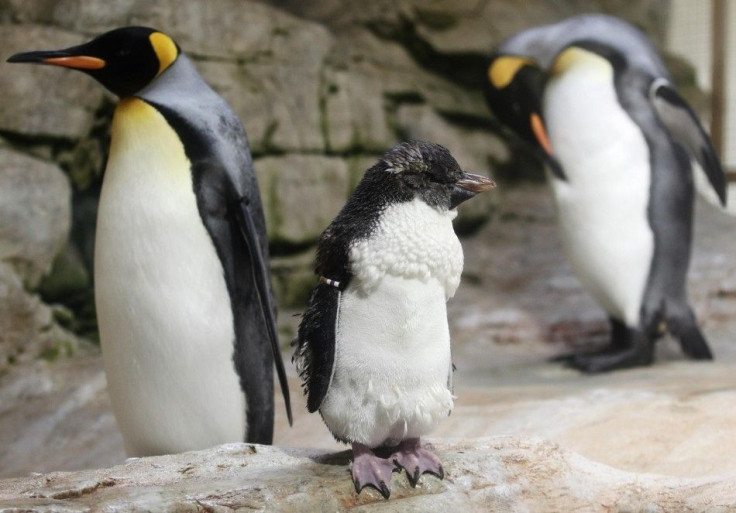Climate Change Driving Extinction of Emperor Penguins; Gone By End of the Century

A new study released by the Woods Hole Oceanographic Institution (WHOI) has said the maddening climate change will drive the iconic emperor penguins to extinction by end of the century.
From a present 600,000-strong emperor penguin population, the study, published in the journal Nature Climate Change, found will be slashed by at least 50 per cent by this century's end.
With this, researchers proposed placing the emperor penguin on endangered status due to climate change.
The reason for the emperor penguins' demise is the declining sea-ice cover in the Antarctic, which will consequently affect their breeding and feeding.
Krill, the tiny shrimp-like crustaceans that populate the Southern Ocean, are the main food source of the emperor penguins. In turn, these krill feed on algae living in the sea ice. When the sea ice goes, no thanks to climate change and global warming, so does the krill and eventually, so does the penguins.
"If sea ice declines at the rates projected by the IPCC climate models, and continues to influence Emperor penguins as it did in the second half of the 20th century in Terre Adélie, at least two-thirds of the colonies are projected to have declined by greater than 50 per cent from their current size by 2100," Stephanie Jenouvrier, WHOI biologist and lead author, said in a statement.
"None of the colonies, even the southern-most locations in the Ross Sea, will provide a viable refuge by the end of 21st century."
Researchers predict that by as early as 2100, all known 45 emperor penguin colonies of Antarctica would have declined in numbers.
Emperor penguins are heavily dependent on sea ice for their livelihoods, and, therefore, are sensitive to changes in sea ice concentration (SIC), WHOI said.
"The role of sea ice is complicated," Jenouvrier said. "Too much ice requires longer trips for penguin parents to travel to the ocean to hunt and bring back food for their chicks. But too little ice reduces the habitat for krill, a critical food source for emperor penguins. Our models take into account both the effects of too much and too little sea ice in the colony area."
Jenouvrier said implementing a marine protected area in the Ross Sea could help buy time to avoid extinction and to put in place needed conservation and greenhouse gas mitigation strategies to protect the emperor penguins.
"One of the things we should do immediately is put a marine reserve in place so we can make sure that we are not fishing in areas where the penguins need to forage for food," she said. "It is one way of eliminating one more threat to the penguins."





















